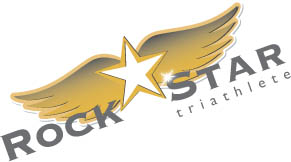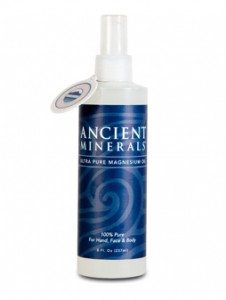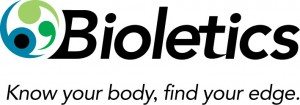February 10, 2010
Click here for the full written transcript of this podcast episode
In this February 10th free audio episode: all about testosterone, whether wheat germ helps you with performance, research on diet coke, getting enough calories, duathlon training, leaning up quickly, saturated fats and magnesium.
Remember, if you have any trouble listening, downloading, or transferring to your mp3 player just e-mail [email protected]. And don't forget to leave the podcast a ranking in iTunes – it only takes 2 minutes of your time and helps grow our healthy community! Just click here to go to our iTunes page and leave feedback.
—————————————-
Featured Topic:
The results are in! In this week's interview with Dr. Richard Cohen from Bioletics, who you may remember from podcasts #53 (six key performance factors), #62 (Ben's performance testing results) and #72 (essential fatty acids), I find out the final results of my home saliva testing for testosterone, and whether I was actually able to make any difference in my hormone levels by following Dr. Cohen's suggestions. Whether you're a male who is worried about that natural decline in testosterone (called andropause) that occurs after the age of 27, or a female who wants to find out whether she may be overtraining or not losing weight properly, Dr. Cohen tells you everything you need to know about testosterone and hormone testing, including:
In my interview with Dr. Richard Cohen, we discuss the following:
-The best way to test for testosterone, and why your doctor probably doesn't do it the right way…
-Which males and females should actually be testing for testosterone (hint: it's not just elite athletes)…
-The exact protocol that Dr. Cohen gave to me to increase my testosterone levels, which were HALF of what they should have been…
-Which supplements work for enhancing testosterone, and which you need to stay away from…
-The final results of my follow-up testosterone test, and how my hormone levels actually changed…
-And much more!
—————————————
Special Announcements:
1. Ready to re-invent your body and discover how to eat and exercise in the most effective way possible? Ben's Body Transformation Club is now open and accepting 50 new members for March of 2010. What the heck is Ben's Body Transformation Club? You'll need to click here to find out!
2. The Rock Star Triathlete Academy is now open and accepting charter members for a limited time. We've also got a brand new podcast on iTunes that you can subscribe to for free by clicking here. To become a $1 Charter Member simply go to http://www.rockstartriathlete.com.
—————————————
Listener Q&A:
Listener Deb asks: “I've recently heard about a natural supplement which is a wheat germ derivative called Octacosanol. I've read that it enhances athletic performance by increasing the body's ability to use oxygen during exercise. I've also read that it increases endurance by bolstering the oxidative capacity of the muscles and thus helps athletes hang on to glycogen stores. I'm wondering how accurate this information is. If this supplement is that powerful, why is it that it it isn't promoted more for endurance athletes? I am a half Ironman athlete and would love it if this supplement is as fantastic as it sounds.”
Listener Christina asks: “I absolutely love your podcast, and consider you a rare diamond in the rough among the health and fitness podcasts on iTunes. I am a runner just turned triathlete, and probably have some of the healthiest eating habits of anyone I know. I limit added sugar, empty calories, and processed foods to special occasions only, such as birthdays. On average, I indulge in these foods less than once a month. My plate is always full of vegetables, I'm taking the recommended supplements, drink lots of water, limit alcohol to wine (and only have one glass or so on weekends), and I just love (and prefer to) cook my own healthy, natural foods.
Here's my vice: I love Diet Coke. In fact, I can't imagine a workday without it. On workdays, I typically have two, and on weekends about one or so. I never or rarely indulge in more than that. Looking at the ingredients I find Carbonated Water, Caramel Color, Aspartame, Phospohoric Acid, Potassium Benzoate, Natural Flavors, Citric Acid, and Caffeine (in that order). I have no idea as to what most of those are. Am I truly doing myself a disservice by drinking Diet Coke, and if so, how? I have not read any medical research that has convinced me to give it up.”
Listener Jose asks: “I have been listening to your pod-casts for the last 2 weeks, all the new ones and a couple of the older ones available through iTunes. I enjoy the subjects you talk about, and I think your answers and advices are very interesting, for most of the listeners' Q&As. I have 2 questions for you today: The first is regarding a recent episode, in which a listener asked you about what would be an example day of your diet. I was surprised when I heard your answer because, even though you didn't give details of the amounts of food for each meal, it seems pretty difficult to get the necessary calories that you probably burn each day (more if you do 2 workouts) from just almond butter, oats once in a while, salads, fruit, a little yoghurt, cheese, oil and protein powder. Did I miss anything in the explanation? Do you eat any bread, cereals, meat, … at all?
The second question is for an advice on how to completely recover from an ankle sprain. This happened to me about 4 months ago, running downhill in a mountain, basically because I was going flat out, and the terrain wasn't the best for that…Anyway, I think I was lucky, because my joints are kind of strong, and I only got a grade I sprain. The problem is that, following a recommendation from a friend of mine, and adding the fact that I didn't want to stop training too long, I just had a 1 whole day rest, and began doing some low intensity cycling and walking right afterwards. I also didn't wear any protection for longer than the first day. The consequence is that, even though my ankle is now almost fully functional (in terms of flexibility and strength), I still feel some pain when doing certain movements. Is there any way in which I could make it heal completely? Physiotherapy, more rest, acupuncture, …?”
Listener Jen asks: “For a sufficient type of drink for calories and nutrients, what is a good alternative to Ensure? Since I no longer want to drink it after listening to this podcast! Also, if sugar causes damage to arteries and imbalanced insulin levels leading to heart disease, does that mean saturated fats and regular fats are alright to eat in their pure forms (i.e. not fried in vegetable oil)? In balance of course.”
Listener Jeff asks: “Hi Ben, My name is Jeff Ward and i live across the pond in England. I came across you and your podcast purely by accident when i heard you in an interview on the ” Indoor cycle instructor” podcast to which i also subscribe, i have since then subscribed to your podcast and think its by far head and shoulders above anything else in terms of useful content :-) Now to my question, which is a two part one. I am, as you may have gathered, an indoor cycling instructor teaching eight classes a week, my time at the weekends is normally spent in the saddle out on the road. As you can see i'm fairly active and try to watch what i eat however i have just enrolled myself in my first Duathlon so am trying to shed a few excess pounds and get to a lean “race weight” but this is proving hard despite my best efforts which draws me to the conclusion that my diet must need some adjusting. So can you give me some tips on the sort of diet i should be following and also at what sort of time i should be eating my last meal ? ( i think i may eat too late ) My classes normally start at six in the evening and they are double sessions ( hour and a half total cycling time ), this leads me on to the second part of the question. As i mentioned earlier i've enrolled in my first Duathlon which is in a little over two months time. It is only a short “sprint” distance ( 4.5 km run, 16 km ride and another 4.5 km run ) so i should be ok. Thing is i don't expect to place first but i don't want to place last so the second part of the question is: Could you recommend a good training schedule that would help me to hopefully complete the event in a respectable time?”
Finally, Bill has a call in thought about Topical Magnesium Oil, which you can find by clicking here.
Do you have a question for Ben? Just click Ask a Podcast Question at the bottom of this page and leave a voicemail, leave a Skype voicemail to username “pacificfit”, or e-mail [email protected].
—————————————
Remember, if you have any trouble listening, downloading, or transferring to your mp3 player just e-mail [email protected]. And don't forget to leave the podcast a ranking in iTunes – it only takes 2 minutes of your time and helps grow our healthy community! Just click here to go to our iTunes page and leave feedback. Be ready for an upcoming interview on “Death By Modern Medicine” with Dr. Carolyn Dean!



I would not recommend that you use OptiMale. On the surface a total serum testosterone level of 843 is very good, but without knowing your free testosterone, estradiol or DHEA levels, you do not truly know the full state of hormonal health. This is best determine with saliva which provides for a complete assessment of your hormonal health.
In addition, of greater fundamental importance and benefit would be to assess and then restore optimal levels of vitamin D and essential fatty acids using proven products. Vitamin D and essential fats are the core factors for cell health and the building blocks for health hormones!
Would taking OptiMale be beneficial for any male athlete? I haven't had my salivary testosterone tested. But my last blood serum testosterone level when last tested a few months ago was 843. I'm 45 years old.
Ben, this is my first time commenting on your podcast and I appreciate you taking the time to answer my question.
I have a running question for you. I do some running-nothing crazy-but I can easily run 5 miles and up to 8 miles off the couch without any training. I have been noticing that my knees (esp. right one) are bothering me. I have new shoes–Brooks–fitted at running store–so it’s not that. The owner there said being a female who has had children, that is to be expected–having to do with hips or something–and he said to do dynamic stretching. Do you agree with that? I really don’t want to stop running–I love little races and 1/2 marathons etc. What do you think? Is it just a stretching thing (which I don’t do a lot of)?
I thought that information about Octacosanol was very interesting and you gave a really good answer to the question. How much wheat germ would I have to eat daily to obtain the suggested benefits of the Octacosanol? I’ve seen it avaible in oil extract as well, but would rather just just be able to eat it. Thanks Ben,
Chuck
Hi Ben!
I spend most of my work day sitting at my desk, but as I have learned from you, I know the benefits of standing as much as possible versus sitting. I can’t stand at my desk, but I’ve seen people in the past sit on inflatable exercise balls. Does actually provide any benefit? My back often hurts and I am hoping it may help this as well. What do you think? Thanks!
Ben, nice interview in this podcast. Thanks. When you have an interview, please balance the audio levels between you and your guest.
Keep up the good work!